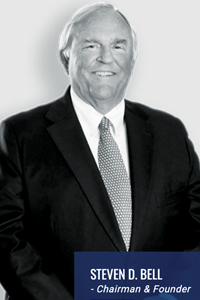Earlier this year, Bell Partners announced that Founder and Chairman Steve Bell, who has personally held a majority stake in the company since its founding in 1976, has transitioned a minority portion of his shares to certain executive officers of the company.
Before doing the ownership transfer, Bell had long-term incentive plans for executives. Succession planning partially drove this latest move.
“Part of [the decision] was proactive in that Steve Bell is 74 years old, and, as we think about the future, and it’s a lot better to be proactively planning for the future versus reactively,” says CEO Jon Bell, Steve’s son. “We’re excited to make that transition of ownership, and I hope it’s the beginning of a process that will continue to evolve over the coming decade.”
The group receiving minority shares includes Lili Dunn (President), Nickolay Bochilo (Executive Vice President, Investments) and Joe Cannon (Executive Vice President, Investment Management). Additionally, Steve Bell has transitioned a small portion of shares to Jon Bell and E. Durant Bell (Executive Vice President of High Net Worth Relations and Business Development), who were both minority shareholders before the transition and have been at the company 18 and 13 years, respectively. The Bell family will remain the combined majority owners of the company.
“It’s something we’ve been planning for a couple of years,” says Jon Bell. “Our opinion is that the company is best served if those who are leading it tactically day-to-day also own part of the company.”
As part of this shareholder transition, the composition of the company’s executive and investment committees will remain unchanged, as will the general partner structure on each of the company’s prior funds.
During the past decade, Bell Partners has made a concerted effort to institutionalize its operations by bringing in several executives from the public company world.
“This is part of the continued evolution of the firm,” Jon Bell says. “We’re continuing to make this a company that’s focused on meritocracy. If we want to be a sustainable, great company, we have got to attract and retain great people.”
To become a destination for those people, a company has to reward them appropriately.
“Great people want to be empowered to effectuate a vision,” says Bell. “So, we have been to be very focused on bringing in great people, and then secondly, aligning interests of those great people. This is just another step in that regard.”
